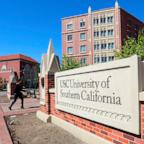Don't Kiss and Swell: Managing Mono
College-bound students may be at risk for mononucleosis infection.
Aug. 8, 2007 — -- In coming weeks, a new batch of freshman will set off for their first year of college. Awaiting them will be the stresses of class work, the anxiety of living away from home -- and the promise of new relationships.
But for a few unlucky students each year, the first semester also brings a cold, followed by fatigue that they just can't seem to shake.
Is it too many all-nighters cramming for exams? Too many parties? Not enough coffee?
For most, the answer is probably one of these. But for a few, the explanation may be mononucleosis.
Mononucleosis, also known as "mono" or the "kissing disease," is an infection often associated with teenagers, but it also occurs in children.
As can probably be guessed from its intimate moniker, locking lips with an infected person is the most notorious way to contract this disease -- a feature that makes it a natural scourge of college campuses.
However, children and young adults can also become infected by sharing food or drinks, or even simply through close contact with someone who is infected. For this reason, mononucleosis often spreads within families.
But what is the culprit behind this illness?
Most often this disease is caused by the Epstein-Barr virus, which infects white blood cells and causes a sore throat, swollen glands, fever and fatigue in teenagers. Once a person is infected with Epstein-Barr, the virus stays in their white blood cells for life.
Mono is not a rare disease, as 95 percent of people will get it during their lifetimes. By age of 5, about 50 percent of children in the United States have already been infected.
Unfortunately, since Epstein-Barr stays in a person's cells for life, anyone who has been infected in the past can pass the virus to someone else -- even if they have recovered from mono. Because of this, preventing infection is almost impossible.
In kids, mono is a very mild disease and is usually mistaken for the common cold. A second wave of Epstein-Barr infection strikes young adults between the ages of 18 and 24 who did not get the infection when they were younger.




